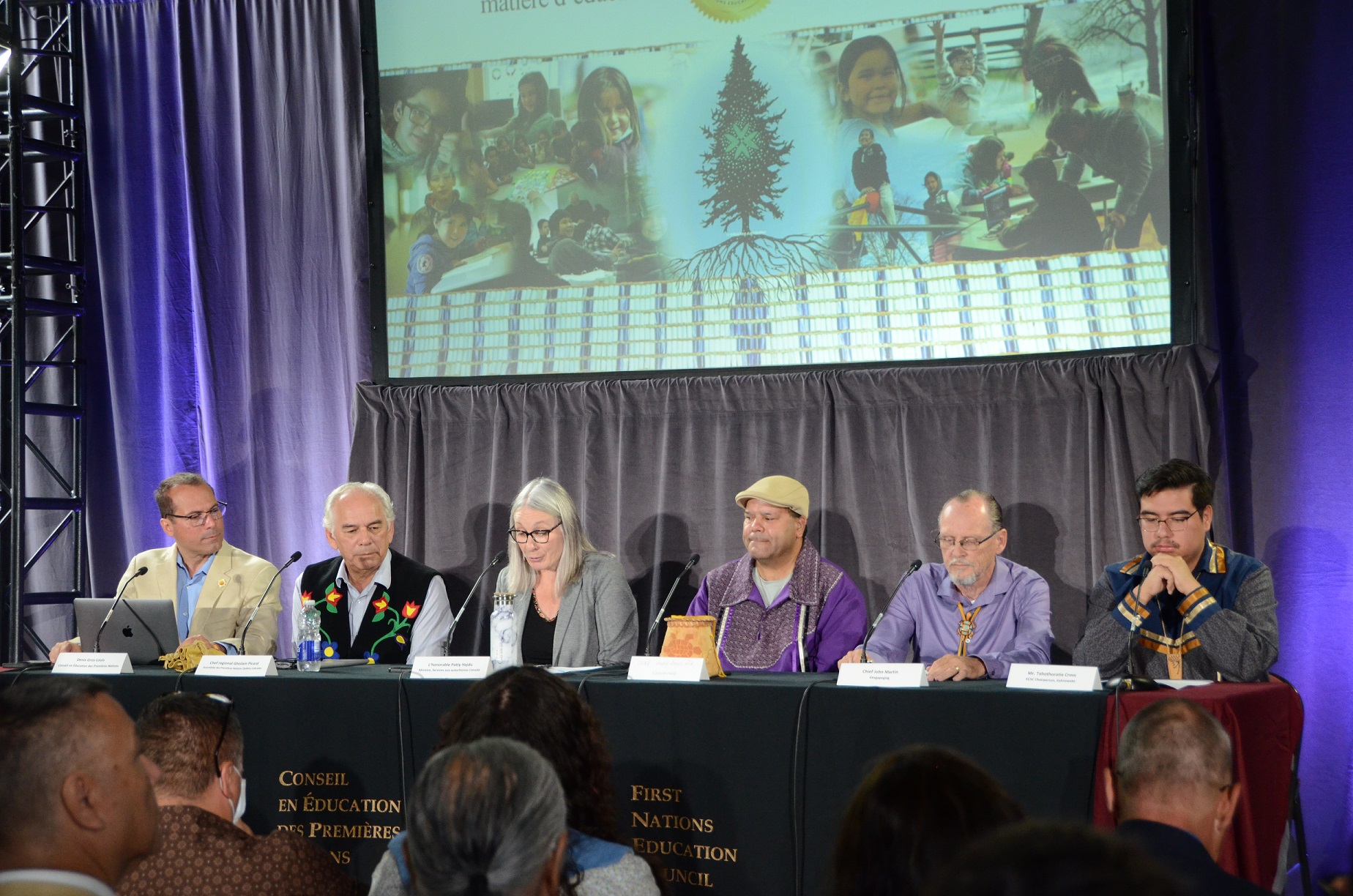Education: a historic agreement signed in Kahnawake

It was in the huge Survival School Gym in Kahnawake that the announcement was made in the presence of the First Nations Education Council (FNEC) and the Ministry of Indigenous Services Canada. (Photo : Le Soleil - Jules Gauthier)
On July 14th, the Government of Canada and 22 First Nations communities in Quebec signed a historic education agreement in Kahnawake valued at 1.1 billion dollars. Among other things, this agreement will allow Indigenous communities to fight the phenomenon of school drop outs more effectively.
Translation Amanda Bennett
It was in the huge Survival School Gym in Kahnawake that the announcement was made in the presence of the First Nations Education Council (FNEC) and the Ministry of Indigenous Services Canada. According to the latter, the agreement will impact some 5,800 students in 22 Quebec communities and eight Nations.
Ottawa has earmarked a total budget of more than one billion dollars over five years to completely finance the various educational needs of Indigenous students from kindergarten and high school. This represents a new investment of $310M in the 2022 budget.
Better opportunities
“This regional education agreement is a huge step in the direction of First Nations Education being managed by First Nations. The agreement provides predictable funding and stability for communities through a funding formula designed by First Nations to meet the needs of all students in those communities,” indicated John Martin, Chief of Gesgapegiag and member of the FNEX Chiefs’ Committee.
He also seized the opportunity to criticize the CAQ’s Bill 96 which, in his opinion, would create an obstacle for First Nations’ educational success.
In this climate of reconciliation, the Canadian Minister of Indigenous Survives, Patty Hajdu, explained that the agreement would enable young people to remain in contact with their language and culture while having access to with better learning opportunities. Ms. Hajdu did specify that this funding would provide for hiring and retaining over 600 education professionals to teach current and traditional knowledge.
Spirit of Decolonization
Ghislain Picard, the Regional Chief of the Assembly of First Nations, Quebec-Labrador, recalled that the First Nations did not choose their colonizer, but that this agreement with the Government of Canada was finally an opportunity to “decolonize our ways of doing things.”
For his part, Denis Gros-Louis, FNEC Director General added that “the fundamental rights to education of indigenous children will no longer be violated by a chronic lack of funding because they are on a reserve.”
Kahnawake Grand Chief Kahsennenhawe Sky-Deer was not able to attend the ceremony for health reasons. The Chief responsible for Education, Harry Rice, took her place.
This agreement has the following main objectives:
Full management of schools by member communities
Improved student achievement
Increased student retention and graduation rates
The implementation of a culturally appropriate school program
Adequate funding for school transportation
The addition of qualified personnel